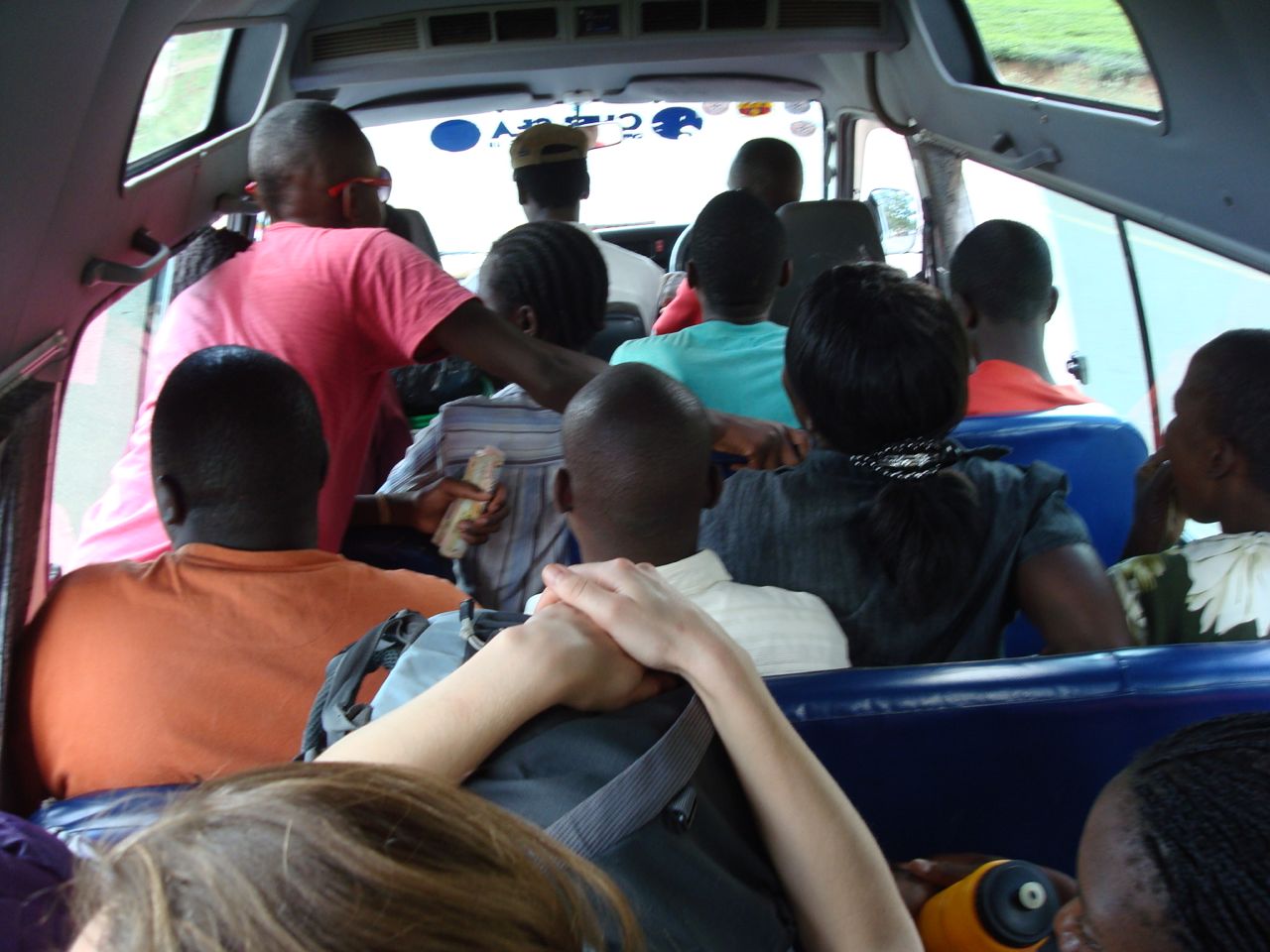
* Passengers are jam-packed in minibuses; drivers of over-capacity minibus corrupt the police to pass their check points
* When police officers collect money, we can’t even lift up our phone cameras and make a video and load it up on YouTube or Facebook reels
* Minibus touters continue to be a nuisance to passengers at almost all bus stops. You know you are going to Lilongwe and the bus is clearly marked Lilongwe, the touters come, ask you: “Mukupita mtauni ya Lilongwe bwana?”
Analysis by Maravi Express Contributor
It’s been a couple of years since I ceased to hitch minibuses on my trips within Malawi. It appears the situation in which minibuses are run hasn’t changed — in terms of how they are driven on the roads; how passengers are jam-packed in them; how minibus touters continue to be a nuisance to passengers at almost all bus stops; how over-capacity minibus drivers corrupt the police to pass their check points; how Malawian minibus passengers get over-charged; and how cold they are not to react or demonstrate that they don’t get the value of their money on any such a trip.

Advertisement
One more controversial and not very related is, how they are made to persevere the absorbance of all shocks delivered to them by the bus due to running on very seriously deep potholes that mock our roads like the after effects of suffering from pimples.
If you are driving behind a minibus, be on the look out — that bus can stop without warning or giving you distance to absorb the sudden changes of action. Even where they indicate they are turning or stopping, without warning you can realise they are blocking you from overtaking them.
They are competing with everyone driving ahead of them. That they get involved in avoidable accidents is a result that there is no deliberate policy to check their actions on the roads — especially on over-speeding.
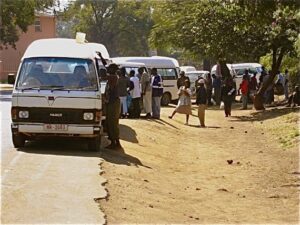
The deliberate policy could be, route ticketing given by aunthentic bus depot clerk who has collected full bus fare rate (a government tax) as the bus is leaving point (Blantyre depot for Lilongwe).
The ticket should indicate time bus left the depot. Should other buses leave Blantyre from other places other than Blantyre Depot, the first road block should ensure the bus is ticketed.
All other road blocks should tally how many tickets are from Blantyre, a thing that can help a council to collect funds — through organisation of ticket collections and mounting spinning counting gates in all our bus stands.
Because the ticket has time, all road blocks can check and determine whether the bus was overspeeding or not. If overspeeding, prompt charges should be given or suspend the journey, make the driver return fares of people so that they can use another bus.
Advertisement
Buses are over-filled by passengers. It appears that drivers over-fill the people with full knowledge that the police officers are sell outs and all they want is money. Minibus drivers stop at these road blocks, fold a bank note and shake hands with officers and say, “bwana muona kuti mutani, yamadzi ndi imeneyo (boss, recieve and buy yourself drinking bottled water”).
And the bus, full and over capacity, drives off at an over speed. Both drivers and officers don’t fear and don’t care about who is watching them.
Then there is a problem of minibus touters on bus depots. You know you are going to Lilongwe and the bus is clearly marked Lilongwe, they come, ask you: “Mukupita mtauni ya Lilongwe bwana? (Are you travelling to Lilongwe, boss?”).
As they are asking, they are already holding your bag to help, and they shout at each other and sometimes fight, pulling your bag among themselves — and the stronger one takes the bag and forces you to take a seat in his bus.
The bus fare you will be charged will include a fee given to touters. I agree with Gospel Kazako, who tried to convince Malawians that it was possible to sweep touters out of bus depots and for a while it was good but hell returned to the dens of satan.
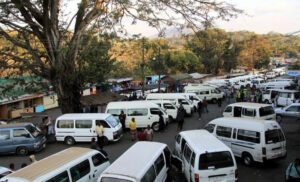
I do not understand what happened to allow bus terminals be filled with thieves and touters that are making travelling inconvenient and also annoying on one hand and expensive — because every passenger is paying these people who do nothing for one to make a journey, and the government is not protecting people, who otherwise could be traveling to increase related internal tourism trade.
How can such happen when thieves are all over and making travel difficult and expensive.
At this juncture, remember that the drivers will over-collect from passengers to buy their way by corrupting officers that man road blocks, and now they are over-collecting to pay touters.
Minibus driver and conductors too, need to dip their fingers in the soup of over-collection for their tummies. It is as if stealing is acceptable — No. Because when you decide to travel you are vulnerable to abuse so that the listed people get paid.
After you contribute to funding road and traffic corruption, the driver then gives you the last treat, making you absorb all the shocks after hitting potholes along our roads.

Advertisement
When you finally make a call you have arrived safely, you are not aware of excruciating pains or nose bleedings that will follow as a result of multiple ills for being on the roads of Malawi.
Why do we allow lawlessness in this transport sector? Surely, when I leave my home to town, I know what bus to take and I surely know my destination, why should I be made to pay people that I have no business with? — ndife anthu omvetsa chisoni.
These touters clam us into buses and we are silent all the way. When police officers collect money, we can’t even lift up our phone cameras and make a video and load it up on YouTube or Facebook reels. If they have to investigate their own, let them find evidence online?
If you think something hasn’t been explained satisfactorily, leave your reaction in the comment box underneath the page of this analysis.
* NOTE: The contributor, whom we do not name, is a Malawian in the diaspora who recently returned home for a visit and experienced some travels in a minibus.
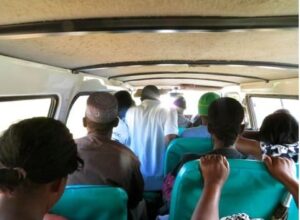
In 2013, tourist named Alec visited Malawi on her university gap year and shared her experience of travelling in a minibus — almost all echoing what our contributor has narrated.
She wrote on her blog spot: Many Mulanje locals told me that you have not truly experienced Malawi without using a minibus for transportation. A minibus is more like a minivan than a bus — they vary in size, but most of them have about five rows of seating.
One thing they all have in common, however, is the constant feeling you get that the vehicle will fall apart at any moment. The tyres are often flat, the sliding door on the left-hand side habitually doesn’t shut properly (or at all), and the interior looks like the inside of a covered wagon painted white.
The vans themselves must age twice as fast as a normal car — there is little maintenance, and you wonder when the engine will just decide to fall out.
The minibus is the regular form of transportation for most Malawians who can afford the cheap fares. You can hop-on and hop off virtually as you please — just inform the conductor manning the door that you want to get off and the van will stop promptly.
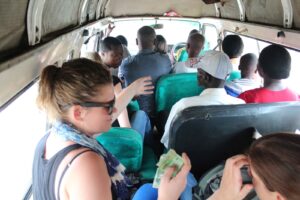
Her caption: One of our minibuses during the weekend. This one is pretty empty comparatively!
When searching for the right minibus, it is important to already know a good fare to your chosen destination before getting on board — that way, you can bargain for the right price. Just ask a local if you’re not sure!
Yesterday, I accompanied my Dutch friends Nena and Sarah to Blantyre to visit the immigration office and to spend some time learning the nightlife scene Malawi’s second largest city. You guessed it — our means of getting there was by minibus!
On the first leg of the journey, we hopped on the back of a bicycle taxi to carry us the first two kilometers down to the bus “station” (more of a wooden lean-to).
Bicycle taxis are a common way to travel to local destinations, like the market, to church, or to a friend’s house. They are relatively inexpensive — the ride from my house to the minibus stop cost me less than 50 cents.
Once on the minibus, I packed into a seat near the back left corner (on the door side). This was a big mistake — the closest you are to the door, the more you have to move to let other passengers out! It’s no small task to move out of the way either, especially for an above average sized human being like myself. I must have had to get off and back on at least 5 times on the way into Blantyre.
A minibus is like a box of chocolates — yew nevur kno wut yurr gunna get. Except of course for the assurance of not having any legroom. There were 22 people onboard at one point; people were sitting on top of each other (this is normal)!
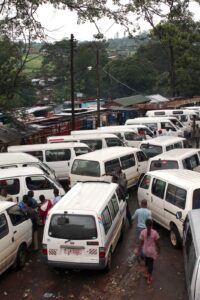
A minibus terminal — you can see the conductors pointing and shouting to get customers!
Nena told me that she once had to hold a live chicken in her lap so everyone and everything could fit inside. Nothing that interesting made its way onto the total of 5 minibuses we took over the weekend, but there was a man carrying 4 large fish from Lake Malawi on the way back to Mulanje.
Needless to say, the ride home didn’t exactly soothe my nerves — it smelled like a mixture of fish, farm animals and exhaust.
The good thing to be said about minibus transportation is that it’s very difficult to lose your way — once you get off one there are always several others around with destinations (written on a piece of cardboard located on the dashboard) in every cardinal direction.
The conductors often shout nearby cities at you to try and get you on their bus, and they are very good persuasion artists. If you are standing alone looking confused, they will guide you, guaranteed.
While I plan to avoid minibus travel whenever possible (the second leading cause of death in Malawi is motor vehicle accidents), I am content that I conquered the minibus and can now go virtually anywhere in Malawi without needing to find a ride.
The minibus is the epitome of the adventuresome spirit that I intend to capture each and every day while in Malawi — I am the captain of my soul.”

Advertisement
She then articulated some ‘Ten Minibus Commandments’:
1. Thou shalt do proper visual inspection of potential minibus before choosing;
2. Thou shalt choose the minibus with the most number of people on board. The more people on board, the sooner the bus departs;
3. Thou shalt drive a hard bargain for the fare;
4. Thou shalt not pay minibus doorman before you get moving;
5. Thou shalt bring along any sort of cargo on the minibus, dead or alive;
6. Thou shalt not sit nearest the door;
7. Thou shalt make sure all belongings are secure;
8. Thou shalt be prepared to not ever feel completely comfortable;
9. Thou shalt bring an open mind;
10. Thou shalt not expect to arrive at any specific time.



Advertisement
